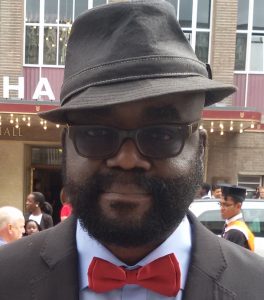
Every end leads to a new beginning which itself contains the seeds of another end. The continuum of life is riddled with ends and beginnings. Depending on where our paths cross or where our sensibilities are rattled or some momentous occurrence jolts us out of our accustomed lethargy, a beginning or end or anywhere in-between could define one’s worldview; it could define one’s attitude to the many tomorrows ahead.
Just imagine, 2021 has crept into history. It did so with a whimper, like its ‘COVIDised’ Predecessor, 2020. The brand new year, 2022 comes with a newborn baby’s clenched fists, holding untold possibilities. The temptation to say, “Que sera sera” is overwhelming, but intellectual indolence has no better personification than a person who, hiding under the babanriga of ill-digested theology, refuses to use lessons of the past to inform the future.
Given where we were coming from, where we are, and the direction we seem to be heading, what is 2022 likely to bring from its storehouse? Will the senate approval of President Buhari’s request for an additional $6.2 billion external loan make life better for the people or would the borrowing be metaphorically another train ride to Maradi?
The Obasanjo-led government had dug Nigeria out of the stagnant mud of debt when, in October 2005, Nigeria and the Paris Club announced a final agreement for debt relief worth $18 billion and an overall reduction of Nigeria’s debt stock by $30 billion. The deal was completed on April 21, 2006, when Nigeria made its final payment and its books were cleared of any Paris Club debt.
Then a combination of economic factors, including lower oil revenues and our refusal to jettison the notorious habit of living above our means, led us to start borrowing anew. By 2014, our external debt had risen to N11 trillion. In five years, it got to N27 trillion, and is expected to rise to over N37 trillion ($94 billion) with the recently approved $6.2 billion.
The crucial question to ask is, are we investing borrowed funds in such a way as to make Nigeria become one of the 10 largest economies in the world, or are we compounding our status as one of the poverty capitals of the world?
An economist, Kingsley Moghalu, ex-Deputy Governor of the Central Bank and a former presidential candidate, thinks the latter is the case.
“Nigeria’s borrowing is not sustainable”, he says. “Forget the nonsense about debt-to-GDP ratio still being within limits at 35%, rising to 42% by 2026. What matters for a developing country is ability to pay relative to revenues and the cost of debt servicing relative to investment in development.”
Moghalu explains further: “At 90 kobo of every one Naira we earn going to debt repayments, there is nothing left to invest in education and healthcare (human capital), the building blocks of any society. Borrowing supposedly to build infrastructure that can’t yield revenues to repay the debt is wrong… According to @IMFNews our revenue-to-GDP ratio will decrease from 7.2% in 2021 to 6.5% in 2026, and the general government expenditure-to-GDP ratio will decline from 13.3% in 2021 to 12.6% percent in 2026. Bottom line, revenues going down, ability to spend on essential services going down. Nigeria needs economic salvation!”
The issue of investing in projects that can pay their way has been on the front burner of public discourse in 2021. Take the investments in rail transport, for example. If the investments were meant to be sustainable, why are the most economically viable routes not a priority? What is our business in using borrowed funds to extend a rail line to Maradi in Niger Republic when we haven’t covered our own commercial cities?
In the last five years, the government has been spending more than it earned, ballooning expenditure from N3.9 trillion in 2016 to N10 trillion last year. When you consider that revenues for the same period only increased from N3.1 trillion to N4 trillion, you can see that the country has been living far above its means. Budget deficit within the period increased from ₦400 billion to ₦5 trillion. The World Bank has suggested ways of increasing non-oil revenues by N10 trillion in the next three years through a regimen of higher taxes, with VAT expected to rake in additional N3.1 trillion.
These taxes are already affecting the lower classes of the people negatively. Unfortunately for the government, these taxes are coming at a time of unprecedented insecurity when there is so much hardship in the land. Also, small scale firms which managed to remain open after the Covid blizzard may have to shut down in the face of a higher tax regime. Going forward, the government has to weigh its desire to capture more tax monies against its oft-stated desire to keep people in employment.
2022 will be a very significant year in Nigeria’s history as it will be the eve of another democratic transition. Already, the potential gladiators are perfecting their strategy while their puppeteers are oiling the social engine in readiness for the inevitable bazaar. If our ‘stomach infrastructure’ past is anything to go by, quite a bit of money — looted or legit — will be in circulation. At the same time, some public officials gripped in the fever of ‘injury time’ may embark on the shark’s equivalent of a feeding frenzy. Haven’t we heard of looted funds being re-looted?
Whatever happens, this is President Buhari’s final full year in office. A new helmsman is expected to be sworn in on May 29, 2023. What the president does or neglects to do in the next 12 months will put the final seal on his legacy. What Nigeria as a country does or refuses to do as we wind down to the end of one administration and eagerly look forward to the beginning of another, will determine the fate of the country and its 200 million people.
Talking about what is hidden in the kernel of Father Time, I take journalistic notice of the Ghanaian government’s threat to arrest soothsayers, prophets, para-psychologists and other merchants of new year predictions if they dare foretell doom for the unborn year. Kill bad news before it is spread any further, especially in a brand new year. Thank God I don’t live in Ghana.
What about Nigeria? On a lighter note, with my mind’s eye, I can see my friend, Prof Moyo Okediji, who teaches Art History at the University of Texas, sitting contentedly beside his latest painting, IWA (Character). A Great Ife talent of no mean repute, Moyo has lately acquired the reputation of a Facebook seer.
“In the year 2022, may Àṣeju not tarnish our Ìwà (Iwa is Yoruba for character and is believed to be the favourite wife of Olodumare, while Aseju, meaning Excesses or Superfluity is the sole woman Olodumare rejected). May 2022 be abo (female) and not akọ (male). 2022 will bring us all sorts of great opportunities. We should accept them. But we must reject Àṣejù.”
Now, before you dismiss that offhandedly, remember that Moyo holds quite a record in oracular prognostications. In 2019, he predicted a Buhari victory in the elections but cautioned:
The times will be tougher
The clouds will be thicker
The fog will be foggier
The days will be gloomier
The nights will be longer
The market will be slower
The valleys will be deeper
The hills will be steeper
The rivers will be drier
The winds will be colder
The sun will be hotter
The moon will be duller
The weather will be harsher
The journey will be harder
The struggles will be stiffer
The rich will be richer
The poor, poorer
The pain, the agony, will be worse for the lowly and the humble.
The sick, even sicker
The sad, sadder
The mad will be madder
The hungry, hungrier.
Now that he says 2022 will present great opportunities in this era marking the end of one particular beginning, I’ll sip a calabash of palm-wine in anticipation. I wish us all plenty of elbow grease and uncommon common sense. Happy New Year!
Goodnight, Desmond Tutu
“President Mandela sent him to Nigeria to plead for the release of MKO Abiola, the winner of the 1993 election who had been detained after the military annulled the result. In an audience with General Sani Abacha, Tutu insisted on seeing Abiola, then publicly lambasted the general for lying to him about the conditions of Abiola’s detention” (Culled from “Desmond Tutu: The Passage of Africa’s Faithful Fighter” by John Allen).
Archbishop Desmond Mpilo Tutu was one of the greatest Africans of our contemporary times. May his valiant spirit continue to inspire Africans and the rest of humanity to strive to make the world better than they met it.
- (Wole Olaoye is a public relations consultant and veteran journalist. He can be reached on wole.olaoye@gmail.com, Twitter: @wole_olaoye; Instagram: woleola2021)




